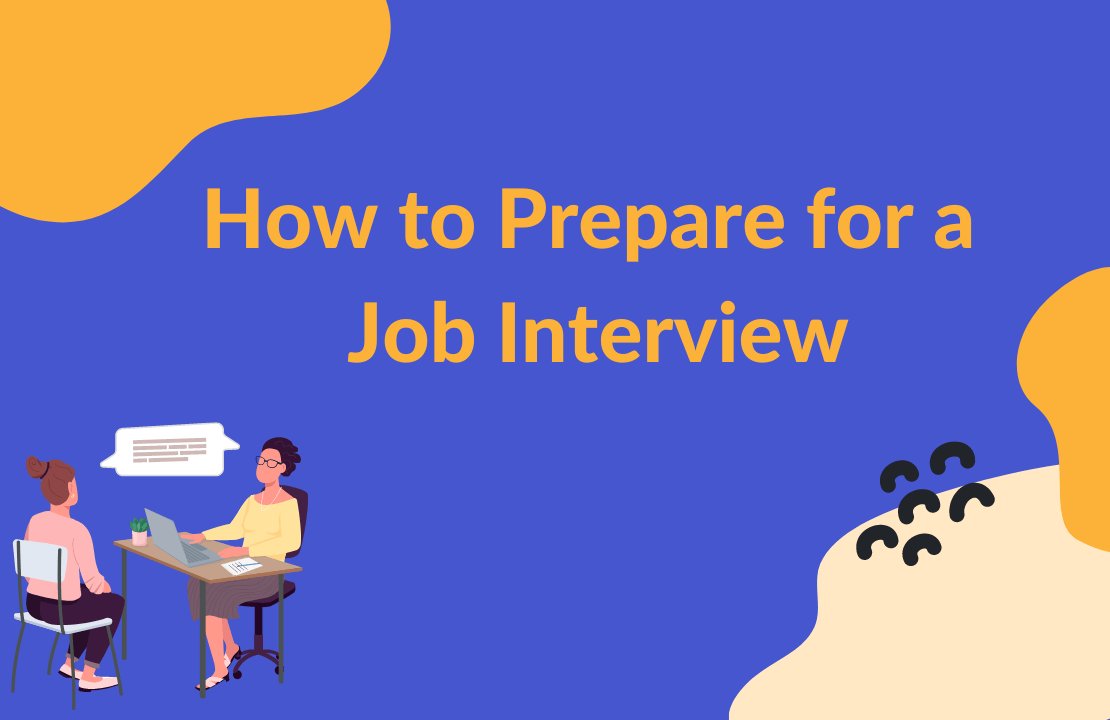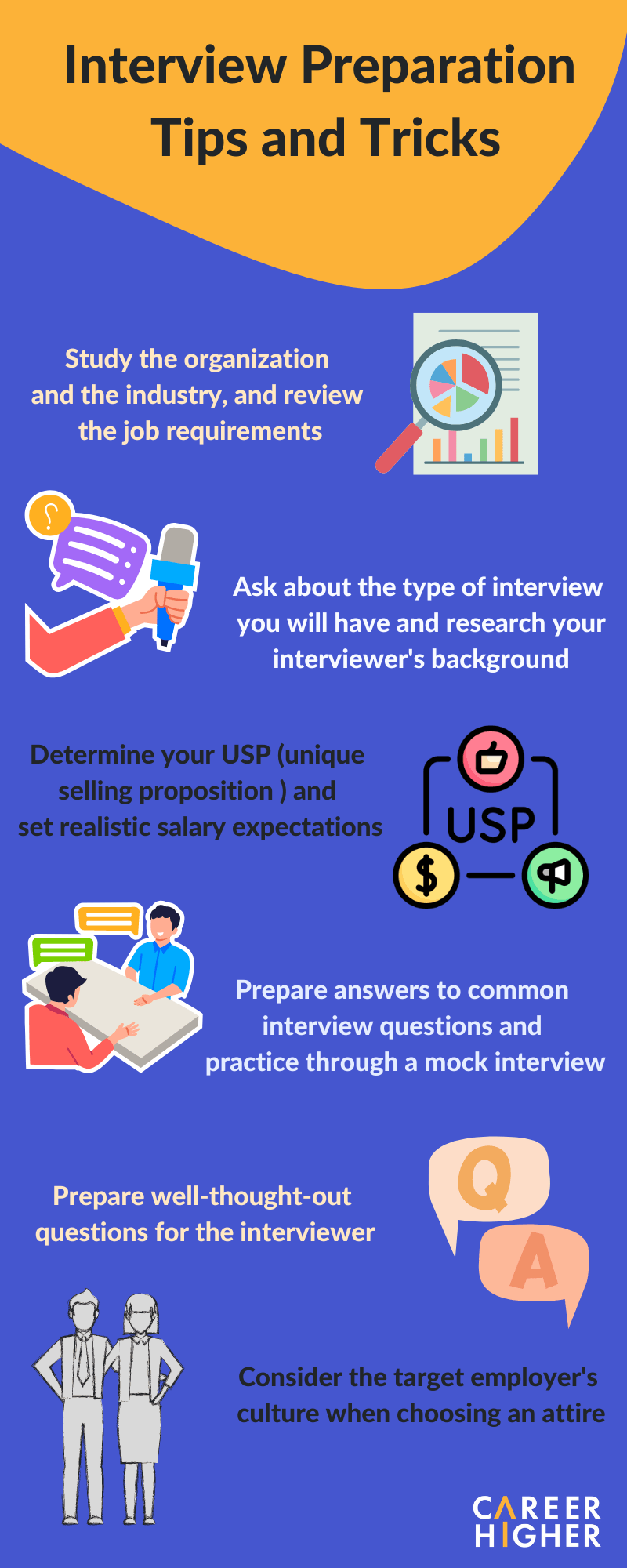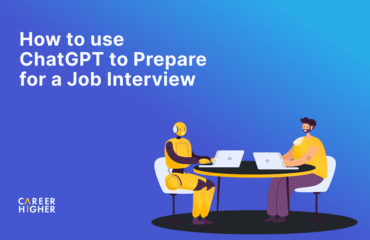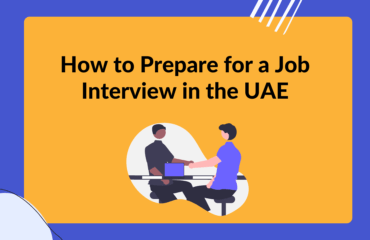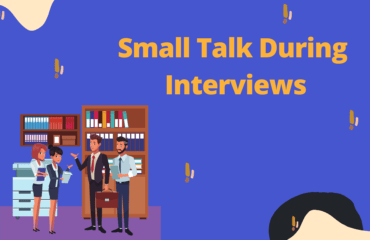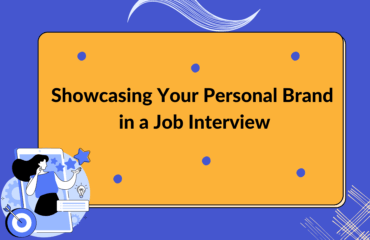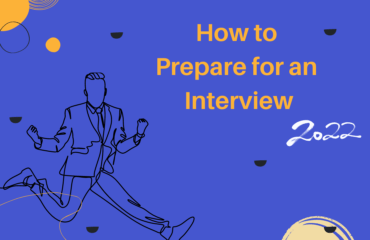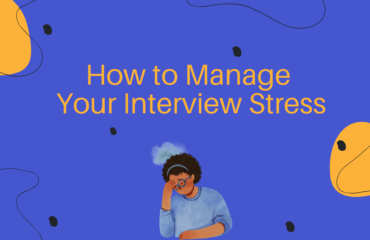Table of Contents
Interviewing for a job can be an exciting process. It is a step closer to landing your dream job and an opportunity to start a new chapter in your career. However, interviewing for a job can also be nerve-wracking if you don’t know what to expect. Hence, preparation is key as it can make a difference between a successful job interview and a missed opportunity. Candidates who have done their homework and plan how to approach interview questions can come across as more confident and competent.
A study by Glassdoor found that 88% of hiring managers consider a well-prepared interviewee to be a quality hire. This proves that preparation makes you more confident during the interview and sets you up for a successful career move. In this article, we’ve put together a list of tips on how to prepare for an interview.
1) Study your target job, company, industry, interviewer, and interview type
Before the job interview, make sure you understand the job, company, and industry you hope to become a part of. Candidates who show that they are well informed about the position are more likely to leave a positive impression than those who seem clueless about what they’re applying for. Here are several ways you can learn more about your target role and employer.
a) Research the organization and the industry
Getting to know the organization and industry you want to work in is a crucial part of the interview preparation process. It allows you to understand better the company’s mission, values, and goals. As a result, you can align your own goals with those of the company and demonstrate to the interviewer that you would be a good fit for the organization.
Reading company websites, blogs, and news articles can give you a good overview of the organization. Pay attention to what they do, their values, products and services, and recent successes or challenges. This information can help you prepare thoughtful responses that reflect your interest in the organization and the industry. Additionally, it paints a more complete picture of what it would be like to work there.
b) Examine the job description thoroughly
Reviewing the job description allows you to grasp the most important responsibilities and skills required for the role. This can be used as a guideline to draft your answers to common interview questions such as “Tell me about yourself” or “What are your strengths?”. Knowing what the employer is looking for will help you focus your answers and make sure that you demonstrate the skills required for the job.
As you read the job description, pay attention to any keywords that stand out. These keywords can serve as signposts for what skills you should highlight during the interview. Next, go through each bullet point to identify key areas where you can provide examples of why you qualify for the role. This will help you draft well-organized answers demonstrating that you are a strong match for the position.
c) Get to know the interviewer
An interview is a great opportunity to develop a rapport with your interviewer and learn more about them in the process. This allows you to establish trust and create a positive first impression with the person evaluating your suitability for the job. Finding out about the interviewer’s background and interests can help you connect with them on a personal level and demonstrate your interest in the company and the position.
If you are not informed who you will be meeting with, it is always best to ask. Take the time to research the interviewer to get a sense of who they are and what interests them. Some of the resources you can use to learn about them include LinkedIn, personal website, social media platforms, and online news articles. When researching the interviewer, avoid becoming too personal and prying into sensitive topics. Stick with relevant and professional details.
d) Find out the type of interview you will have
There are different types of interviews, and the way you present yourself will be different in each type. The type of interview will also influence how you prepare for it. For example, an interview over the phone will require a different approach to interviewing in person because you will not have the opportunity to convey your personality through body language. Make sure to find out in advance what type of interview you will have so that you can prepare accordingly. Let’s take a look at some of the common interview types you may encounter.
- Phone interview
- Pre-recorded video interview
- Technical interview
- Case interview
- Assessment interview
- Working interview
- Traditional interview
- Panel interview
- Group interview
- Off-site interview
2) Polish your interviewing skills
Many candidates crumble when put on the spot during the interview. Hence, polishing your interviewing skills is imperative to perform well. It enhances your ability to answer tough questions and remain calm under pressure, which is extremely valuable to nail your answers. To ace your next interview, we recommend doing the following.
a) Identify your USP for the job
In order to sell yourself to the interviewer, it is important to identify your unique selling proposition (USP) for your target job. This can be relevant skills, industry knowledge, experience, behaviors, and talents that make you the ideal candidate for the position. Your USPs are what make you stand out from other candidates with similar qualifications and experience. It also demonstrates how you add value to the organization and why they should hire you over someone else.
To identify your USP, go back to your research and determine the key areas in which you excel. Then, think of examples from your past work experience that highlights these strengths. Consider how you can connect this to the organization’s needs and how you can help solve their challenges. For example, if an organization is looking to expand its presence into a new market, you can highlight how your knowledge of that area can help you target potential clients or expand their market share.
b) Familiarize yourself with industry salary trends
Before going to an interview, it is imperative to know how much you should be getting paid based on your qualifications, skills, and experience. This will help you understand what you are worth in the current market and set your expectations appropriately. Armed with this information, you will be better prepared to discuss your salary requirements with the employer during the interview. It will also empower you to confidently negotiate a fair offer when you finally land the job.
Some job postings may not include information about the compensation package. In this case, you will have to do some research to find out the average salaries for similar positions in the industry. Glassdoor, Salary.com, and PayScale are some of the good online resources you can use to get a ballpark figure. However, remember only to bring up the salary topic when asked during the interview. Bringing it up spontaneously is a no-no as it may give the impression that you are only after the money.
c) Plan answers for common interview questions
When preparing for an interview, it is crucial to be well-versed in common interview questions. Being well-versed will enable you to quickly answer the questions with confidence and avoid stumbling over your words. It will also allow you to provide structured responses and share relevant information without rambling on and on. Although it may not be possible to predict all the questions you will be asked, knowing the most popular ones will prepare you best for the interview. Here are a few examples.
i) Tell me about yourself.
To answer this question, focus more on your professional profile and less on personal matters. Highlight parts of your experience, expertise, and education that are relevant to the position. Cut out any details that don’t add value to your target job.
Example Answer: “In the past decade, I have held several business development roles at multinational firms. My experiences allowed me to gain a comprehensive understanding of the digital marketing landscape. By working closely with various cross-functional teams, I was able to contribute to an increase in the firms’ online market share by a significant margin. I am confident that I can leverage my expertise to help XYZ Corporation expand its market reach and establish a strong foothold.”
ii) Why are you interested in this opportunity?
This is an excellent opportunity to show your passion for the job. Talk about how the role aligns with your professional goals. Your response should also include reasons why the company appealed to you.
Example Answer: “I’ve been passionate about the Blockchain technology industry since I discovered its potential to transform the way businesses operate. This position presents me with an exciting opportunity to contribute to the Blockchain revolution from a new angle that complements my expertise in marketing. Apart from this, Company ABC’s innovative approach to the business and its commitment to giving back to the community drew me to apply here.”
iii) What are your key strengths?
Other variations for this question include “Why should we hire you?”, “Why are you a good fit for this role?”, and “What are the main benefits you can bring to the table?”. The best way to answer these questions is to focus on strengths that relate to the specific requirements of the role. Pick strengths that you are genuinely proud of and highlight how you’ve used them in your previous jobs.
Example Answer: “I am an agile thinker who can quickly evaluate new situations and come up with workable solutions. I find it rewarding to think outside the box and find creative solutions to problems or business situations. For instance, when I was working on a marketing project for a new product launch, I came up with an innovative idea to incentivize users to share their feedback on social media. This generated positive buzz around the product in a short span of time and boosted sales by X%. I am confident I would be able to contribute similar value in this role.”
iv) What is your greatest weakness?
Although this question is as not as popular as it used to be, it sometimes comes up and can be challenging for applicants who are unprepared. Ideally, we recommend answering this question with a weakness that is not related to your target job. It could be a personal or skill-related weakness that has no impact on the job’s requirements at all. Even if your weakness is irrelevant to the role, you can still explain briefly how you’ve worked to improve in that area. The key is to redirect the conversation to your strengths.
Example Answer: “I had the tendency to over-analyze situations before coming to a decision. As a result, I would often hesitate to take action and end up not getting things done. To address this weakness, I’ve started practicing “start with the end in mind” and developed a habit of taking things step by step. This has helped me become more decisive and I am confident that I can do the same in this role as well.”
v) Why do you plan to leave (or have left) your job?
Regardless of your reason for leaving, it’s best to avoid negativity altogether when answering this question. Instead, focus on expressing a personal and professional desire to make a change and move on to something better. We also suggest finding ways to relate your decision to your candidacy.
Example Answer: “I decided to leave because my current company does not offer enough scope for professional growth. After several years in sales, I want to move into a role that’s more aligned with my long-term career goals. Working at your company would allow me to use my existing knowledge and skills in new areas while also providing me opportunities to advance my career.”
vi) Where do you see yourself in five years?
Employers use this question to gauge your long-term career aspirations and see if they align with what the company has to offer. While it’s challenging to predict what your professional future will look like, it’s important to demonstrate that you are motivated to stay in the company for the first five years. Mention how you’re hoping to make a meaningful contribution in your role and continue to grow as a professional.
Example Answer: “One of my future goals is to become a senior manager in HR. I would like to develop an in-depth understanding of employee retention strategies and learn how I can ensure that the company keeps its valued employees. In the next five years, I hope to contribute to the development and implementation of new HR policies across the organization that would have a positive impact on recruiting and retaining top talents.”
d) Practice your answers
Preparing your answers to common interview questions is one thing. But it’s another challenge to actually deliver them in a way that feels natural and genuine. To get comfortable with your answers, we suggest practicing through a mock interview. Have a friend, family member, or a career strategist ask you questions and provide constructive feedback. Doing so will help you fine-tune your responses and give you the confidence you need to deliver them in a real-life situation.
Avoid memorizing your answers word for word as they may sound stiff and scripted. Instead, take a mental note of the core points and important keywords that you can use to frame your responses. This will enable you to stay on track during the interview while still sounding conversational and natural.
e) Prepare smart questions for the interviewer
In most cases, interviews close with a final question, “Do you have questions for me?”. This is your opportunity to continue to prove yourself and find out whether the job is truly right for you. In order to get the most out of your interview, be prepared with questions that will show you have taken the time to do your research. Interviewers are more likely to remember candidates who ask insightful questions and demonstrate a genuine interest in the company and the position. Let’s take a look at some of the sample questions to ask.
- What are your expectations for me in this position?
- If I start tomorrow, what would be the first thing I could do to add value?
- What are the main obstacles I have to overcome in this role?
- What do you like best about working here?
- What plans does the company have for growth and development?
- What do new hires generally find surprising after they start?
- How would you describe the company’s culture?
3) Prepare interview logistics
Interview logistics can include things like dress code, location of the interview, and relevant career documents. Preparing these in advance will eliminate last-minute stress and help you feel more at ease on the big day. Below are a few tips to keep in mind.
a) Plan your interview attire
Apart from your qualifications, the way you present yourself can also play a big role in whether or not you get the job. Hence, it is essential to look your best during the interview. Make sure you’re dressed appropriately for the occasion. This means wearing an attire that shows you are professional and eager to be hired.
When it comes to planning what to wear, it is important to consider your target company’s standards and culture. Research the company to get an idea of the dress code. You can refer to their website and social media pages to find out this information. Additionally, you can ask Human Resources or someone you know who works at the company for recommendations. Here are some general guidelines to follow when deciding what to wear for your interview.
- Pick a conservative and professional-looking attire
- Choose clothes and shoes that are comfortable
- Go for minimal patterns and neutral colors
- Ensure your clothes are neat
- Stay away from extreme and revealing looks
- Be mindful of your perfume and hairstyle
b) Print out copies of relevant career documents
Career documents may include a resume, cover letter, letters of recommendation, and professional certifications. Make copies to bring to the interview in case the recruiter or hiring manager requests them. This will help you avoid any last-minute scrambling and ensure that all the information is on hand when needed.
During your preparation, we highly suggest reviewing the documents to ensure they are error-free. You can also take the opportunity to update them if needed, so they reflect your current skills and experience. If need be, you can seek guidance from a mentor, friend, or career expert to help you craft these documents.
c) Make a reference list
A reference list is a list of people who can vouch for your skills, character, and abilities. This is one of the most important aspects of your job search, as it demonstrates to potential employers that you are trustworthy and reliable. When compiling your list, make sure to include past managers, co-workers, and clients who can attest to your strengths and successes in your work.
For each reference, you need to be prepared to provide basic information such as name, position, and contact information. You also need to include a brief summary of your working relationship with your reference. Finally, remember that references should only be provided if asked to do so. But before giving someone as a reference, make sure to take their permission first.
Conclusion
The interview process can be difficult and stressful for unprepared candidates. While you can’t control everything that may happen during the meeting, there are things you can do to make sure you are ready. Learning how to prepare for a job interview is an invaluable skill that will ensure you stay ahead of the competition. Following the above tips will give you the best possible chance of securing your dream job.
